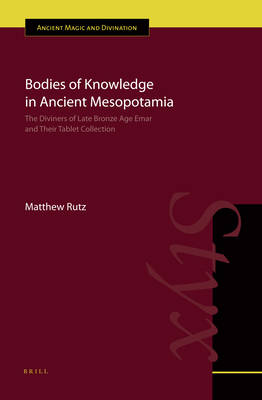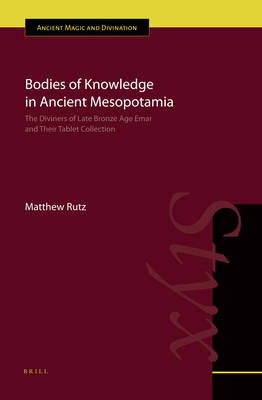
- Afhalen na 1 uur in een winkel met voorraad
- Gratis thuislevering in België vanaf € 30
- Ruim aanbod met 7 miljoen producten
- Afhalen na 1 uur in een winkel met voorraad
- Gratis thuislevering in België vanaf € 30
- Ruim aanbod met 7 miljoen producten
Zoeken
Omschrijving
In Bodies of Knowledge in Ancient Mesopotamia Matthew Rutz explores the relationship between ancient collections of texts, commonly deemed libraries and archives, and the modern interpretation of titles like 'diviner'. By looking at cuneiform tablets as artifacts with archaeological contexts, this work probes the modern analytical categories used to study ancient diviners and investigates the transmission of Babylonian/Assyrian scholarship in Syria. During the Late Bronze Age diviners acted as high-ranking scribes and cultic functionaries in Emar, a town on the Syrian Euphrates (ca. 1375-1175 BCE). This book's centerpiece is an extensive analytical catalogue of the excavated tablet collection of one family of diviners. Over seventy-five fragments are identified for the first time, along with many proposed joins between fragments.
Specificaties
Betrokkenen
- Auteur(s):
- Uitgeverij:
Inhoud
- Aantal bladzijden:
- 704
- Taal:
- Engels
- Reeks:
- Reeksnummer:
- nr. 9
Eigenschappen
- Productcode (EAN):
- 9789004245679
- Verschijningsdatum:
- 11/04/2013
- Uitvoering:
- Hardcover
- Formaat:
- Genaaid
- Afmetingen:
- 163 mm x 239 mm
- Gewicht:
- 1202 g

Alleen bij Standaard Boekhandel
+ 766 punten op je klantenkaart van Standaard Boekhandel
Beoordelingen
We publiceren alleen reviews die voldoen aan de voorwaarden voor reviews. Bekijk onze voorwaarden voor reviews.











